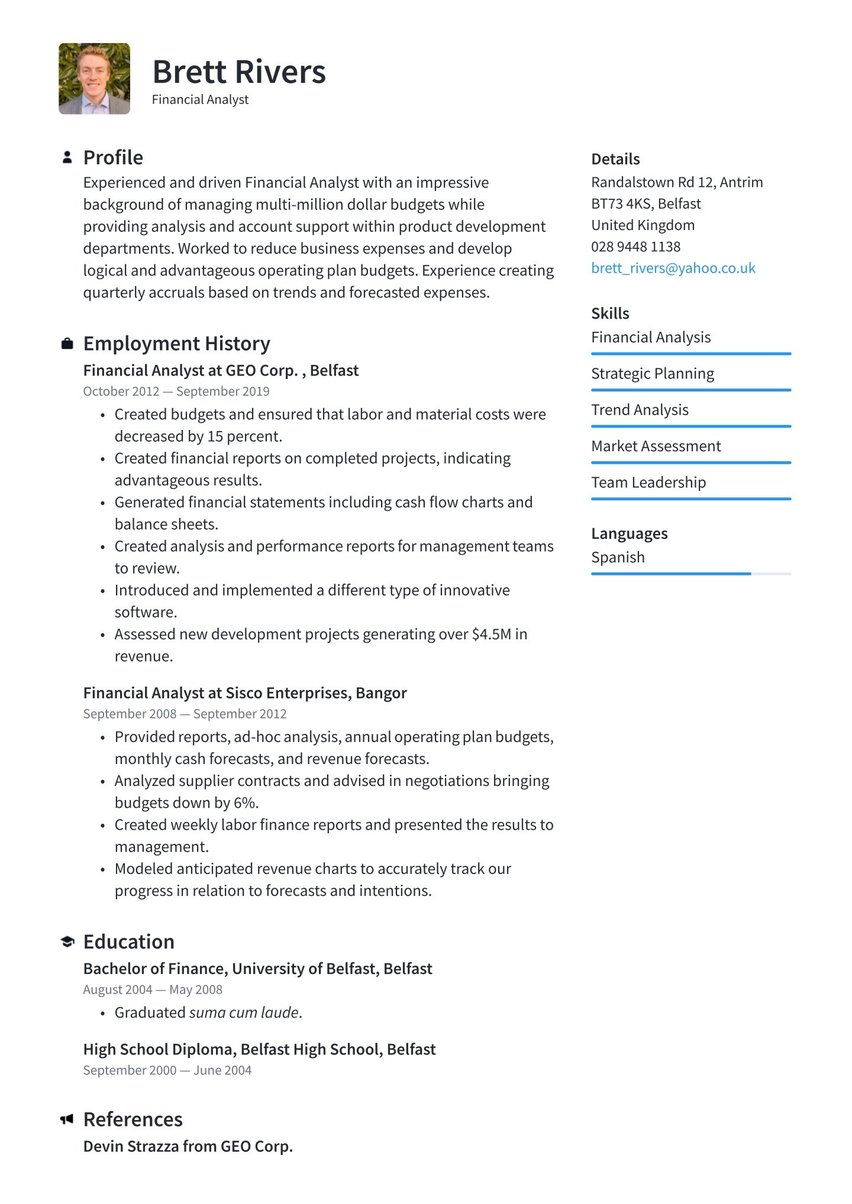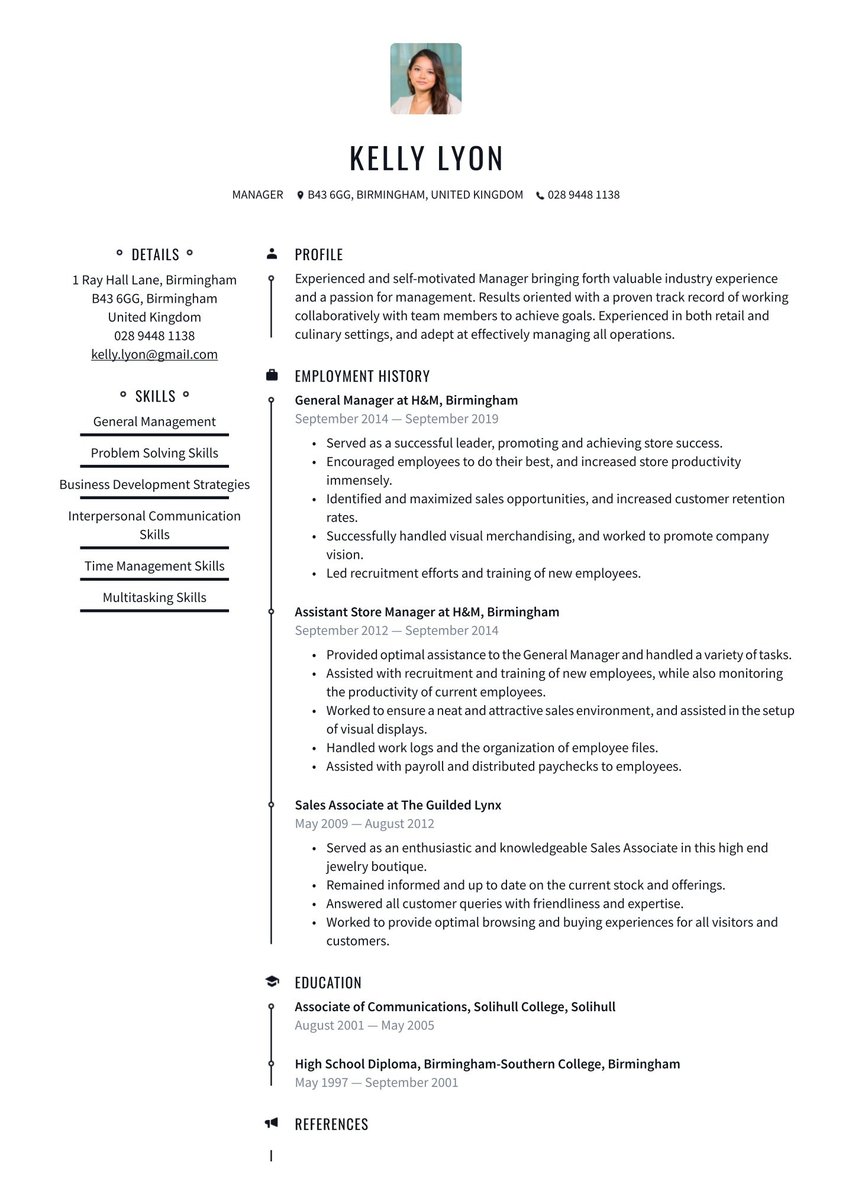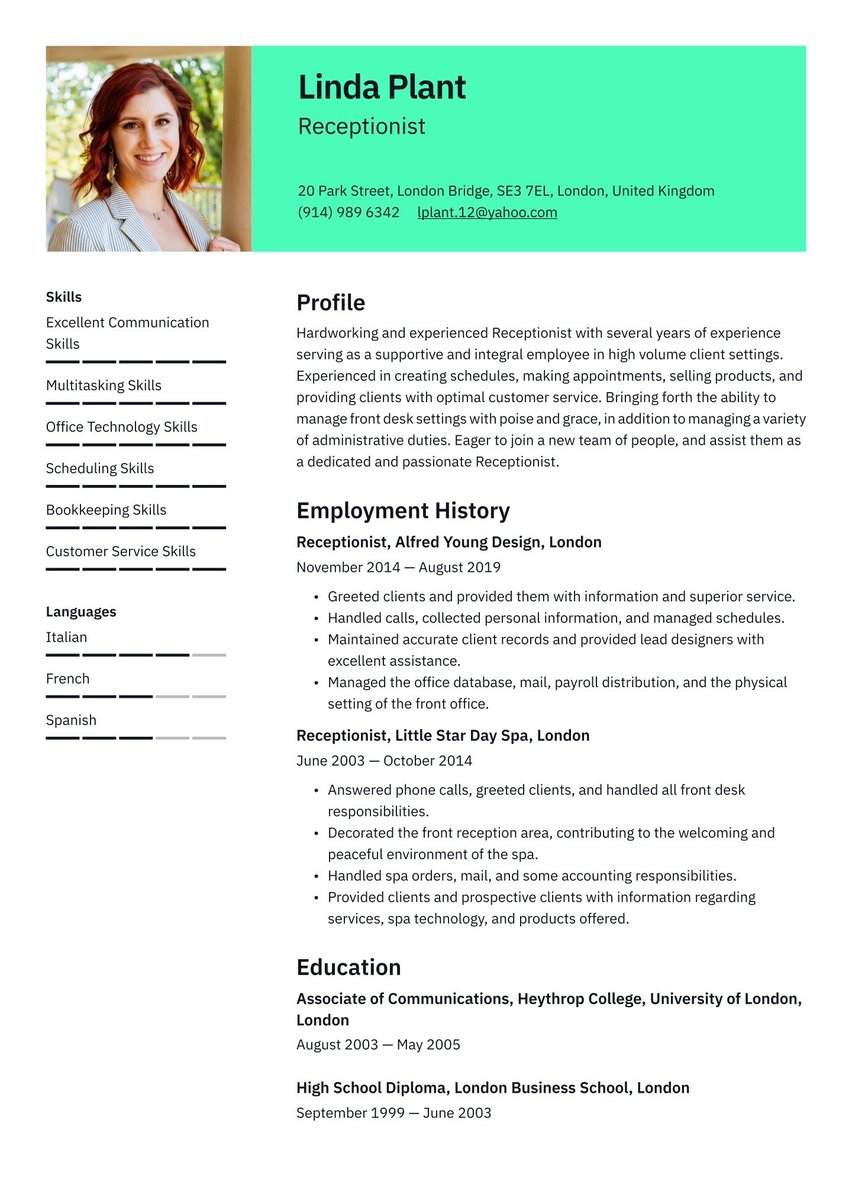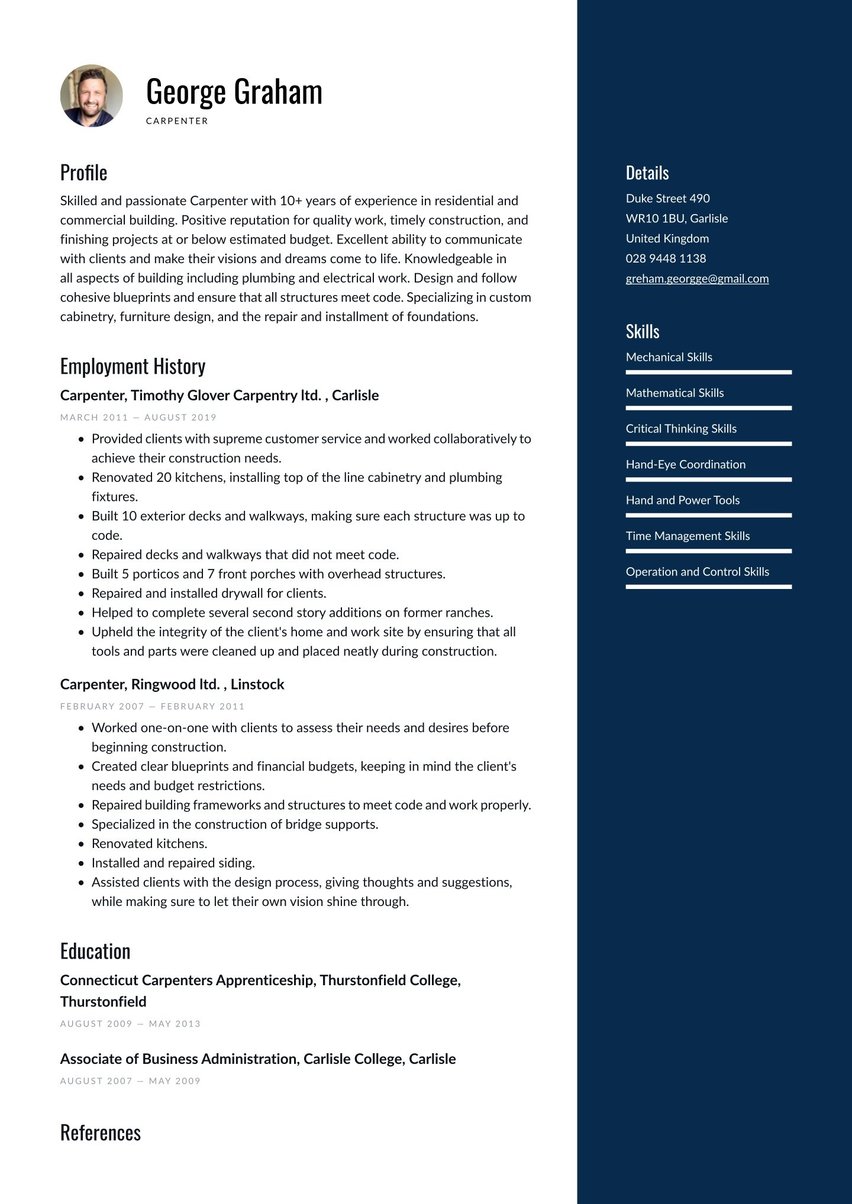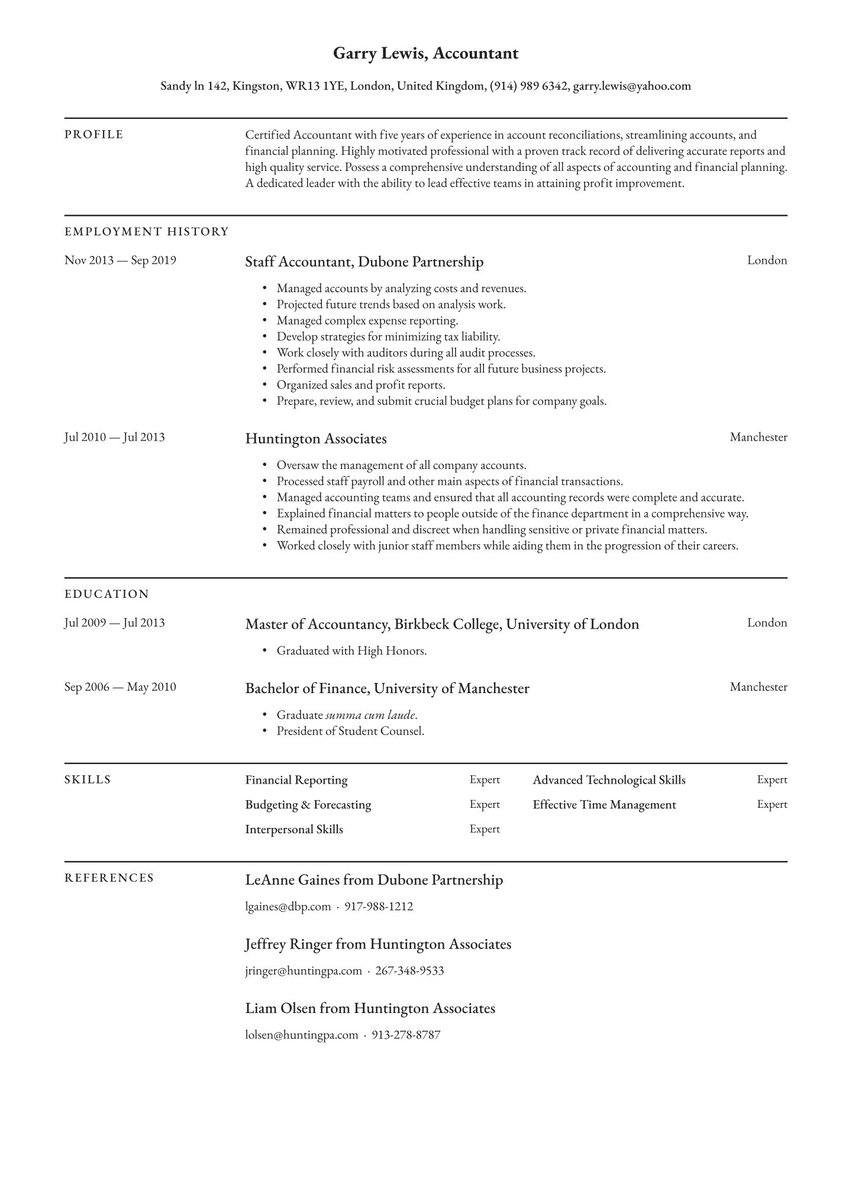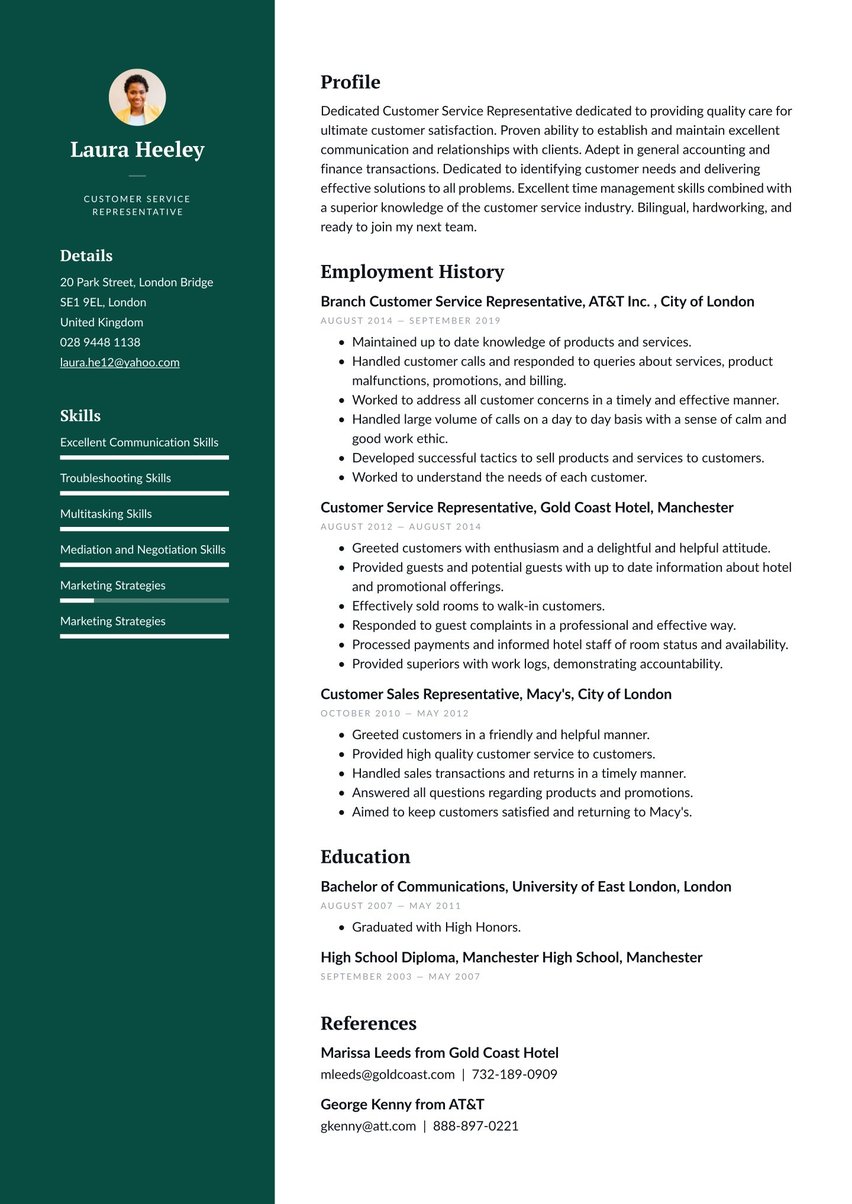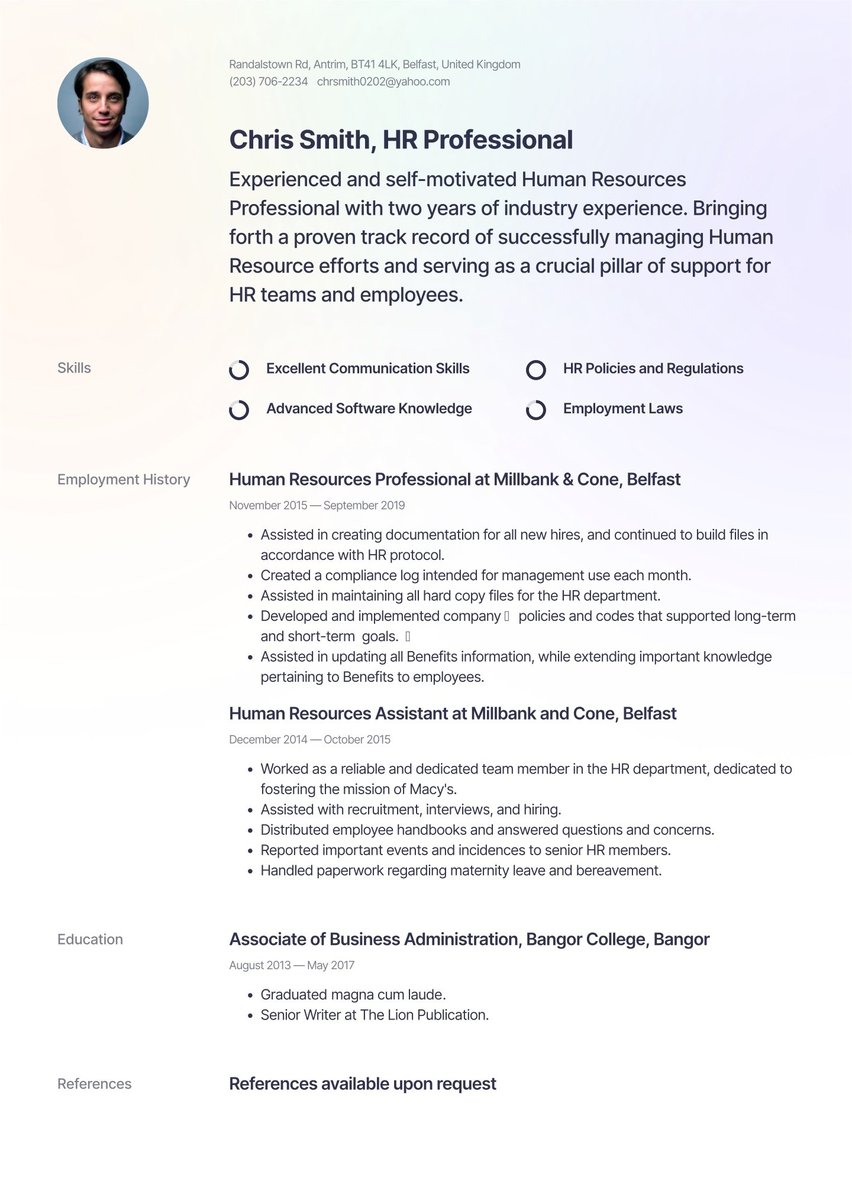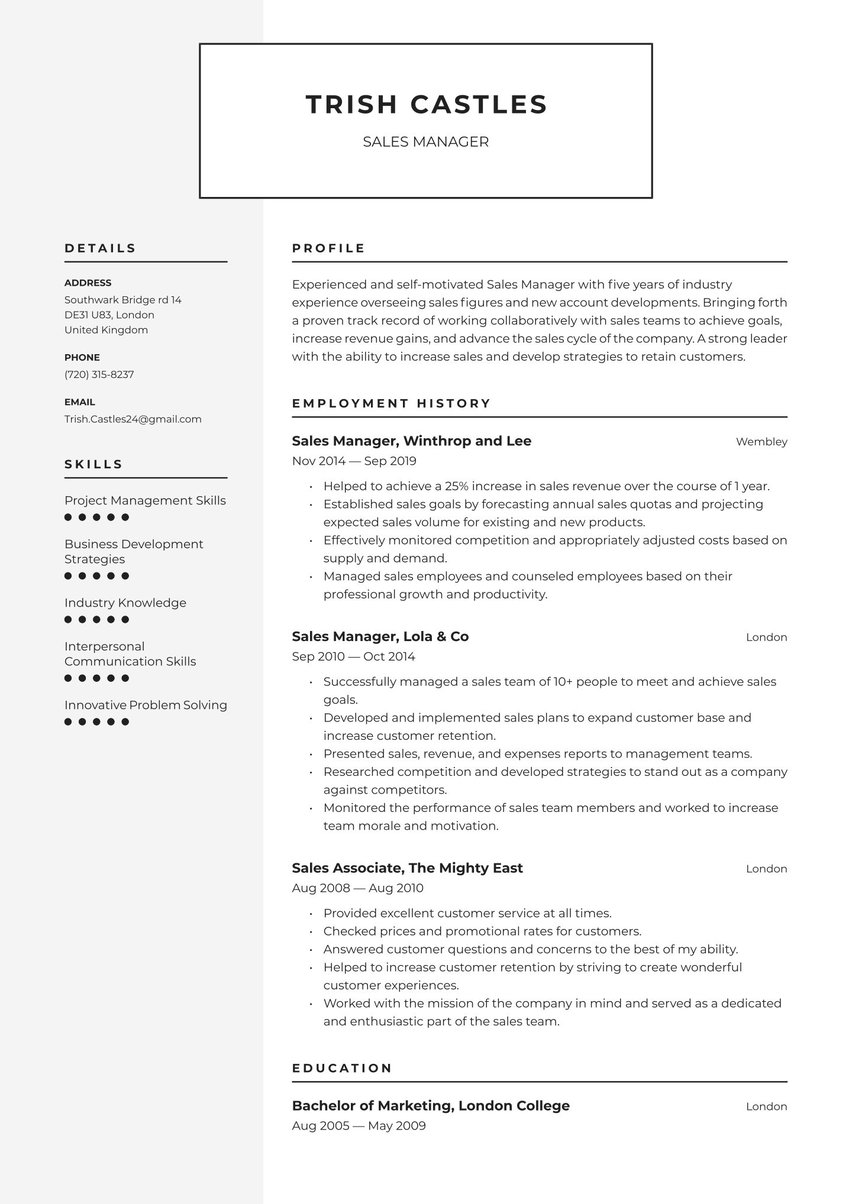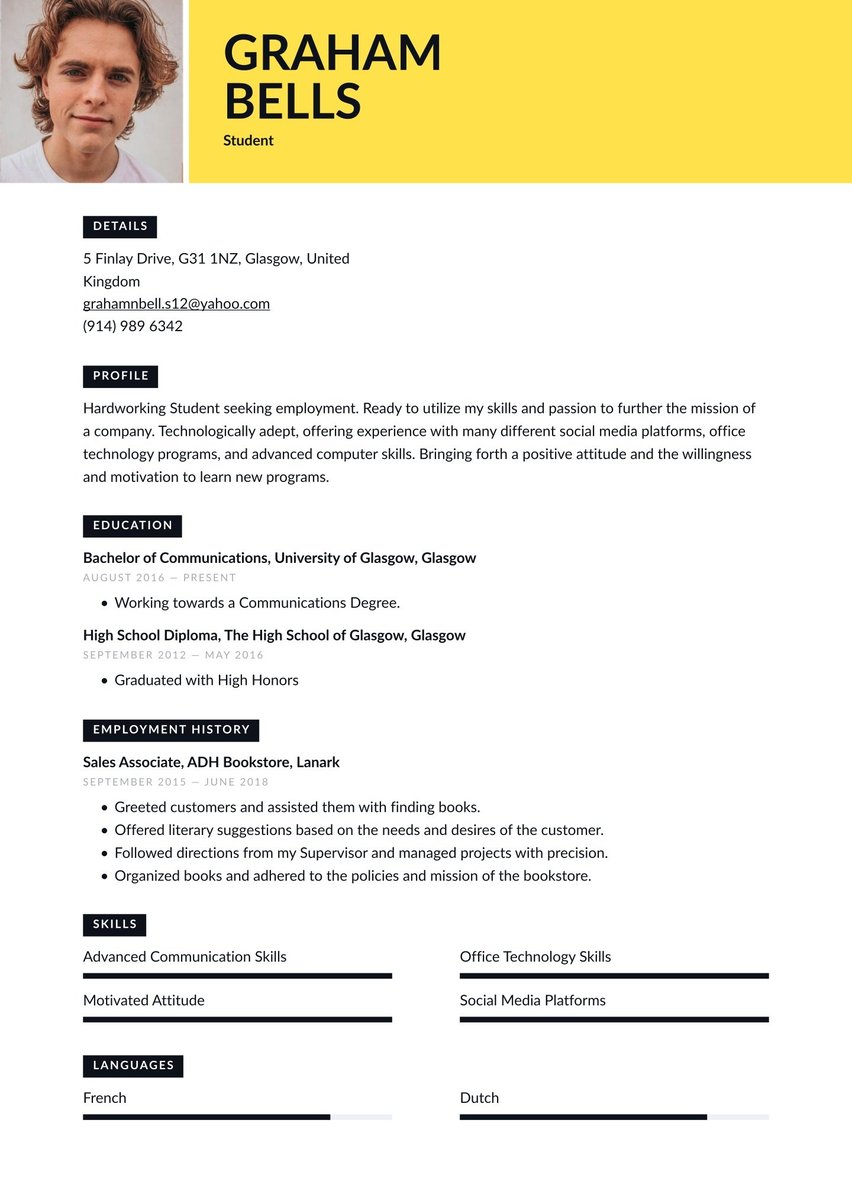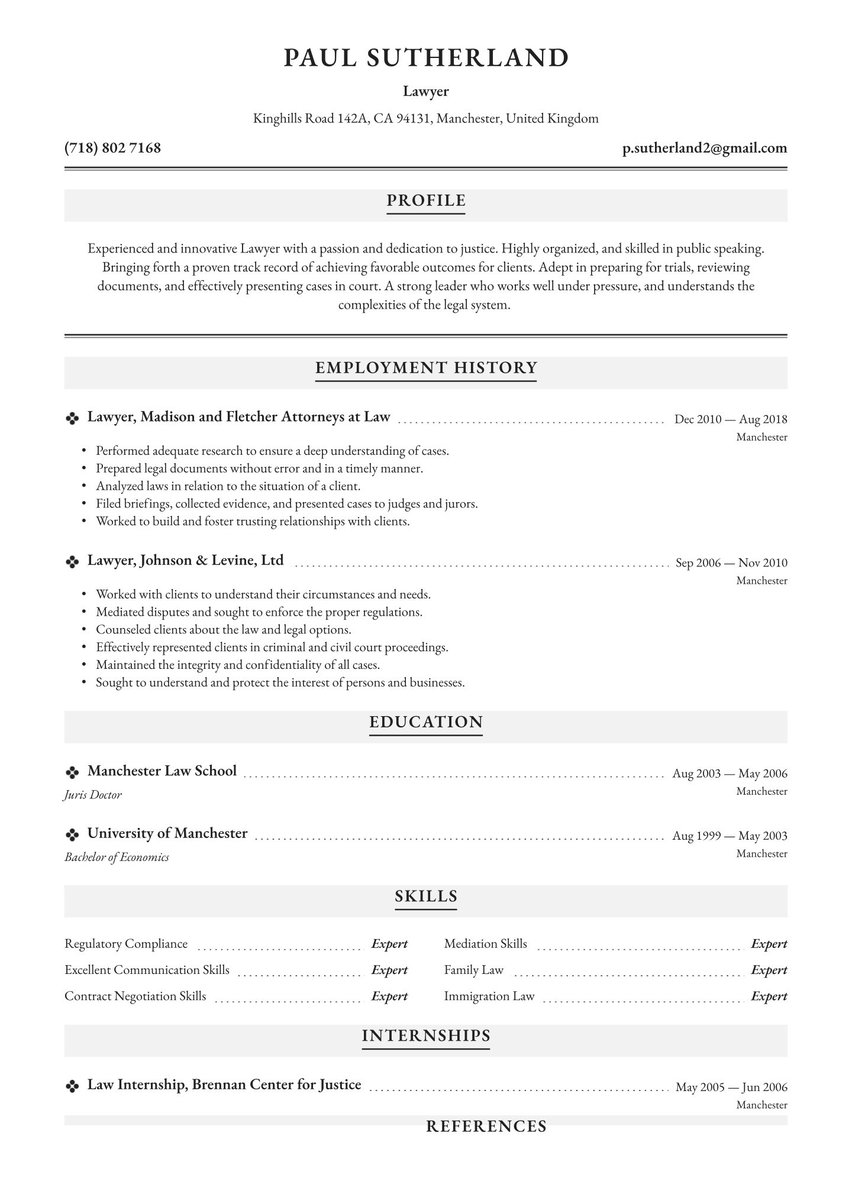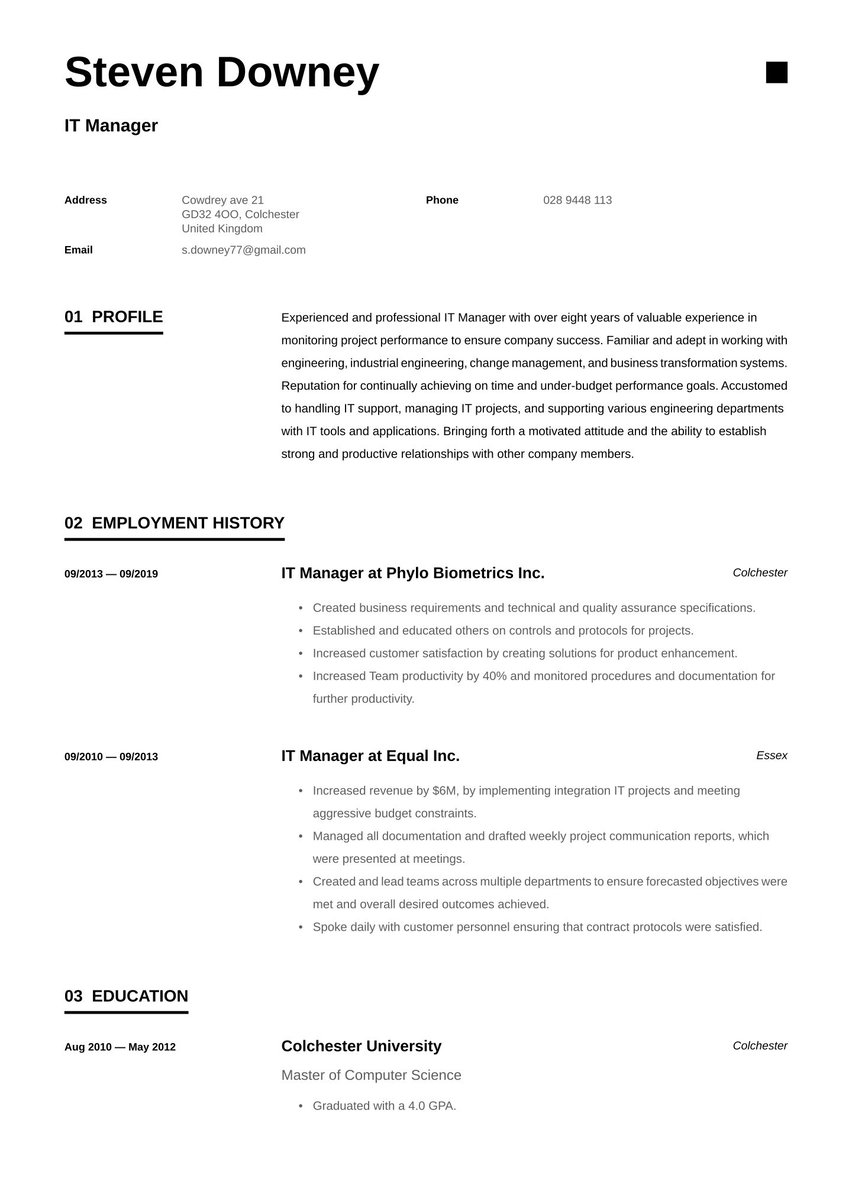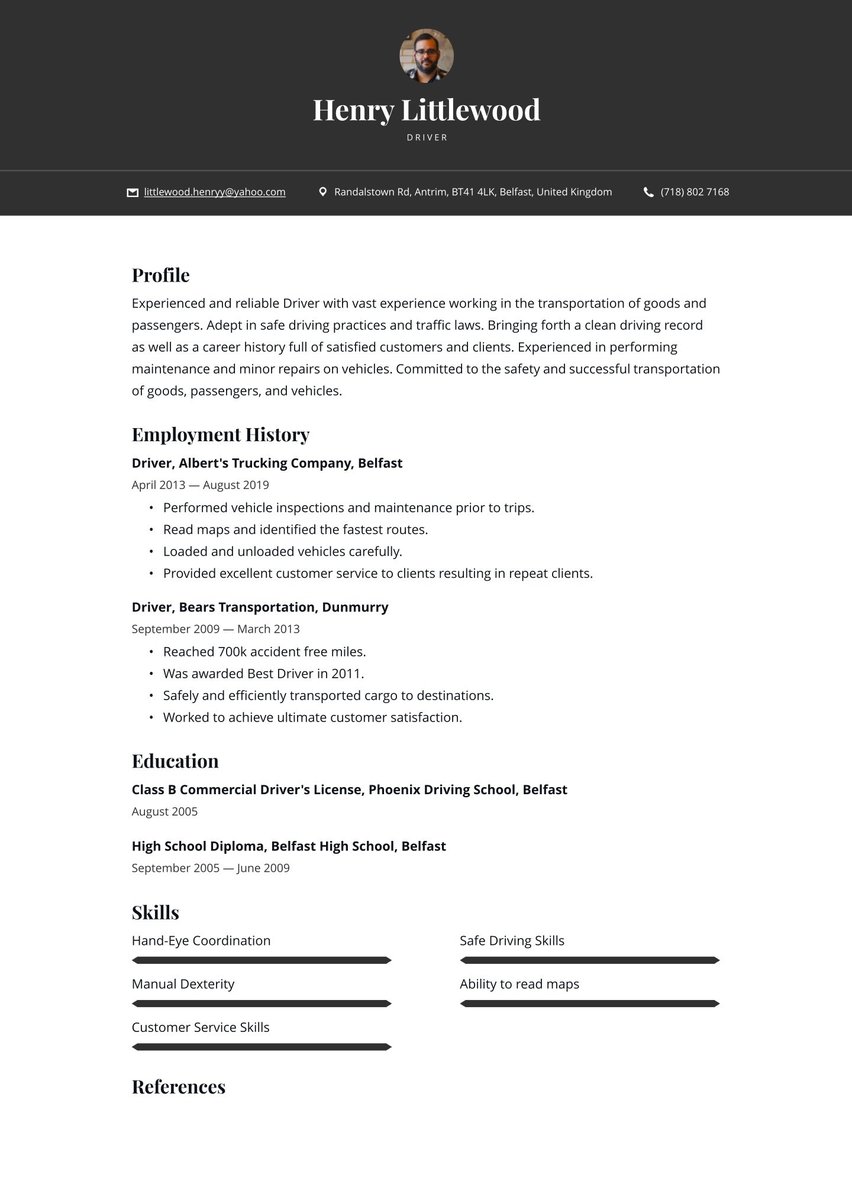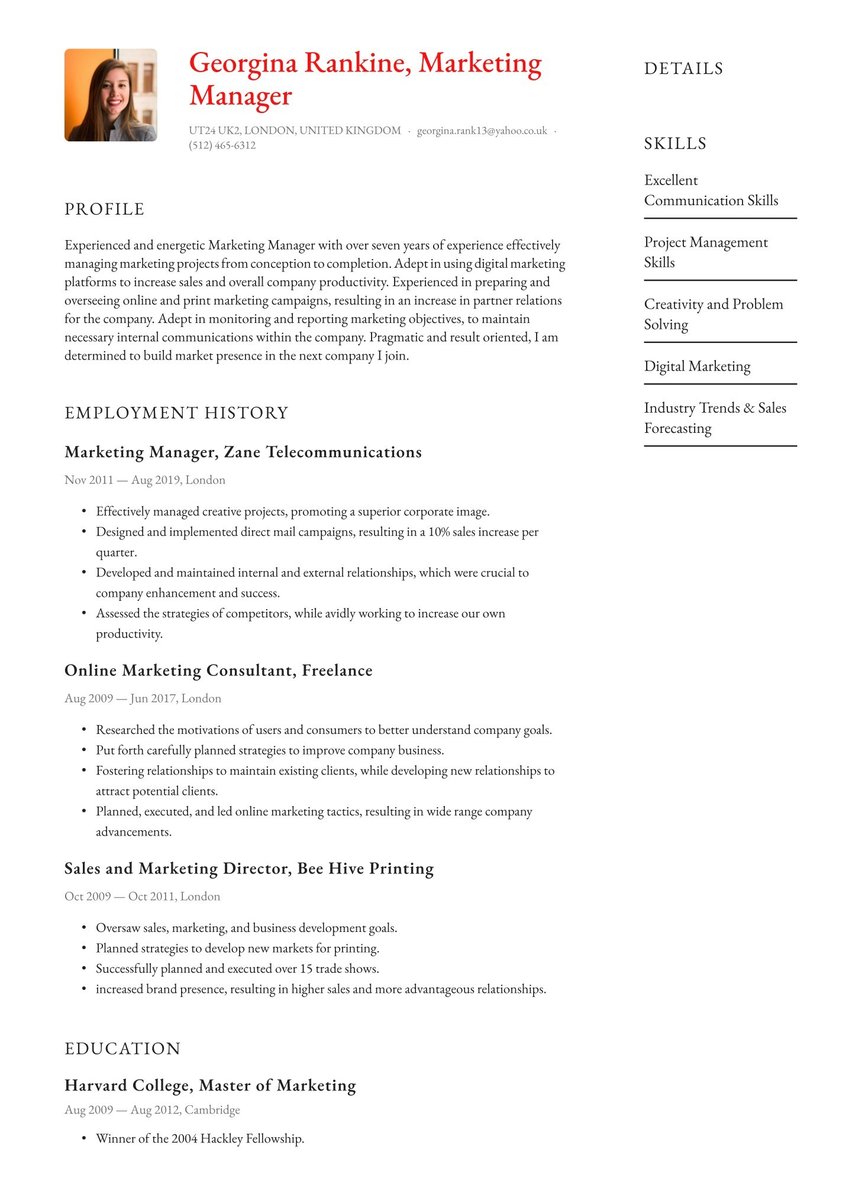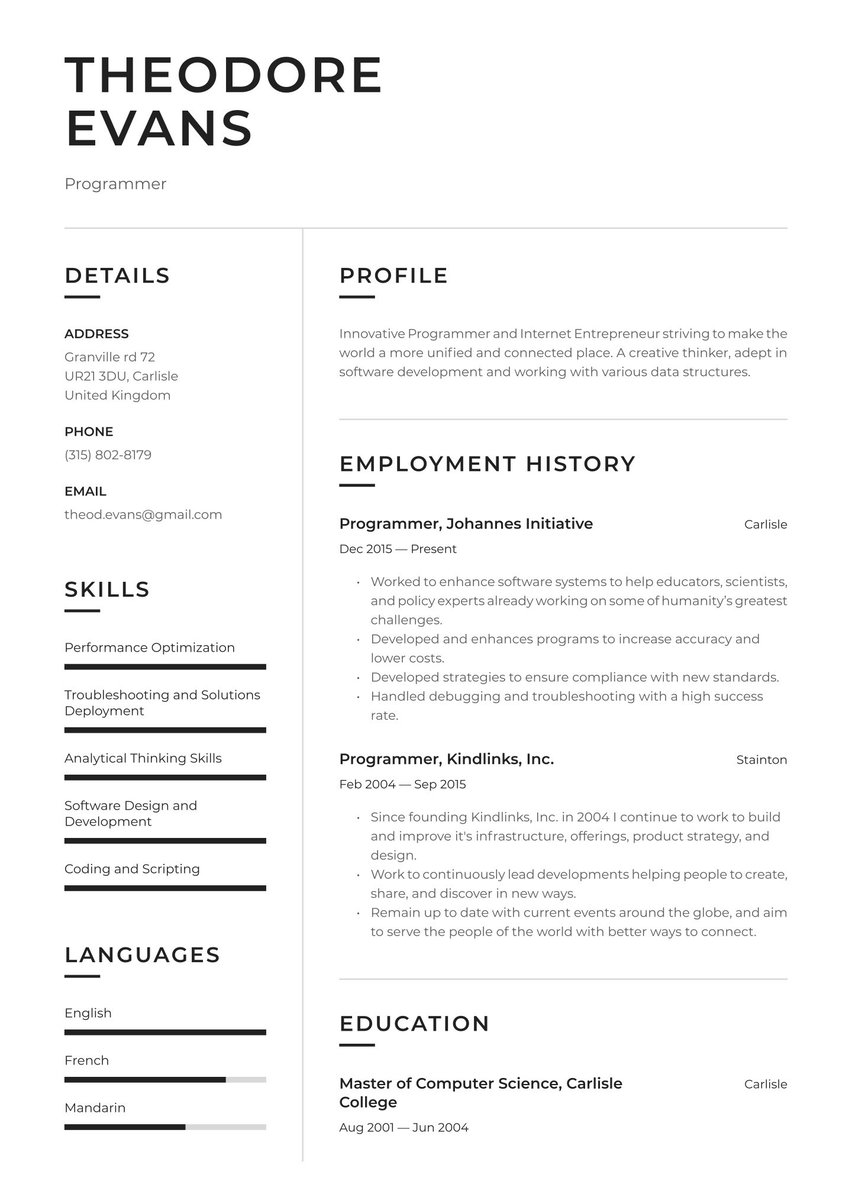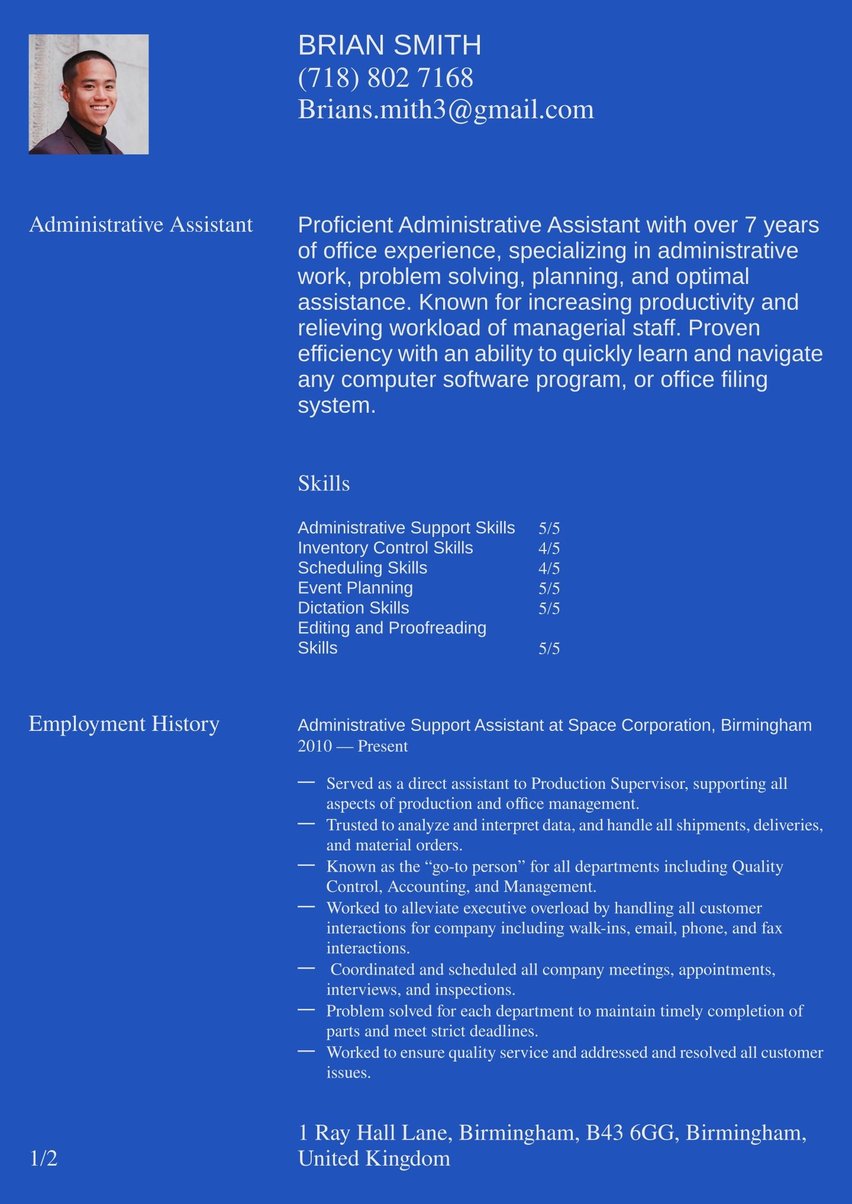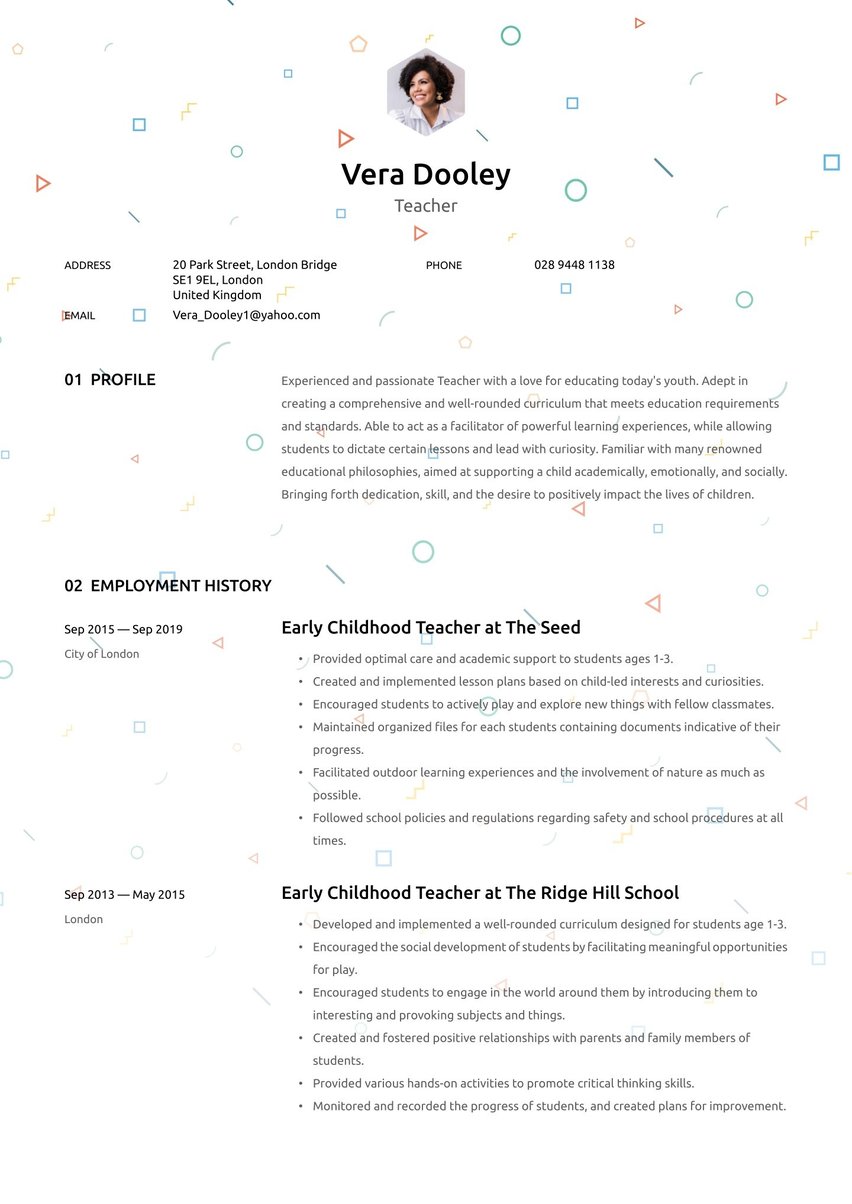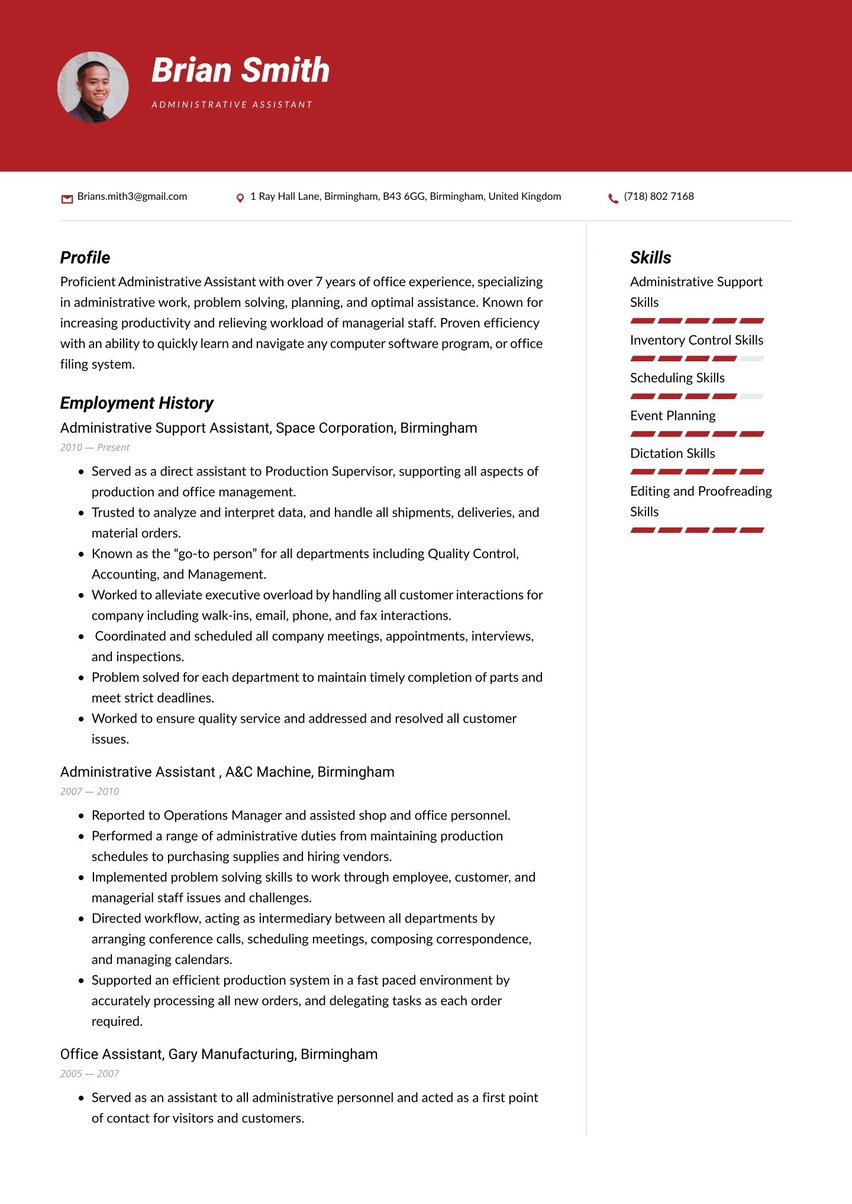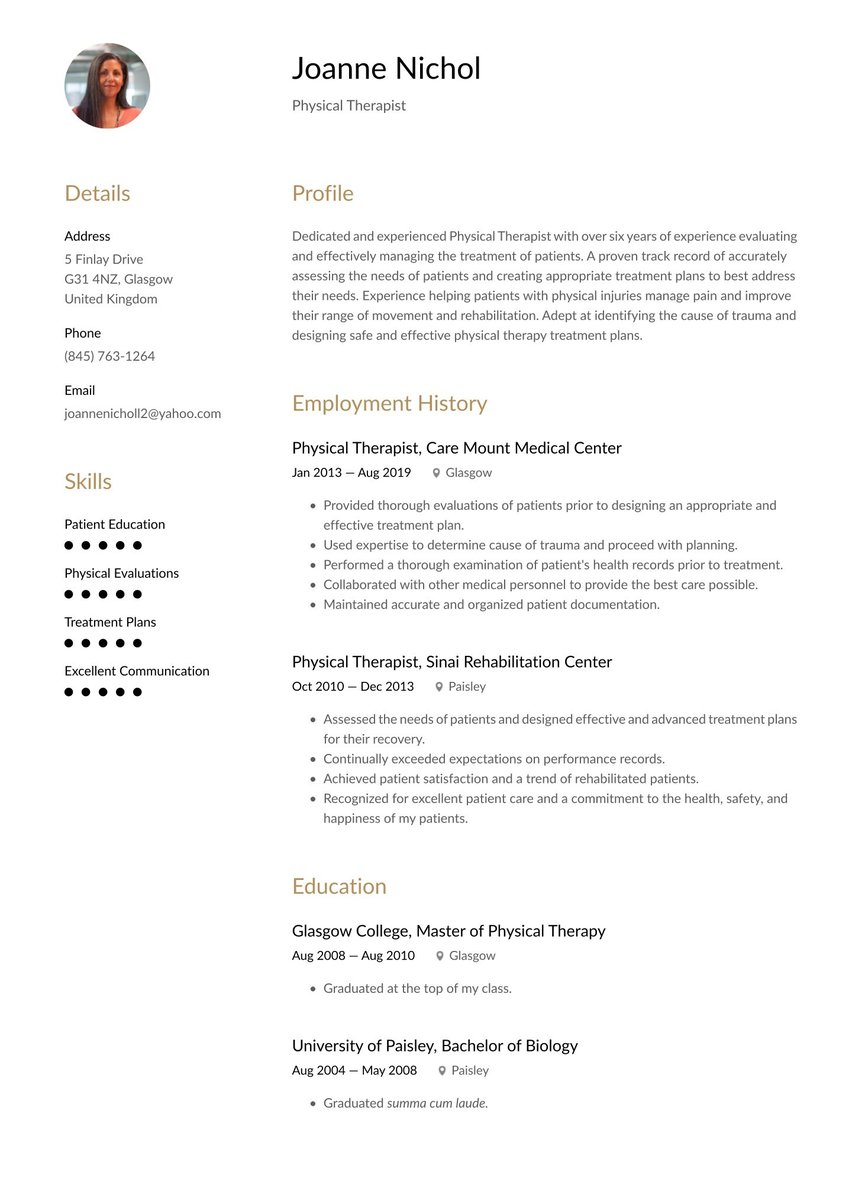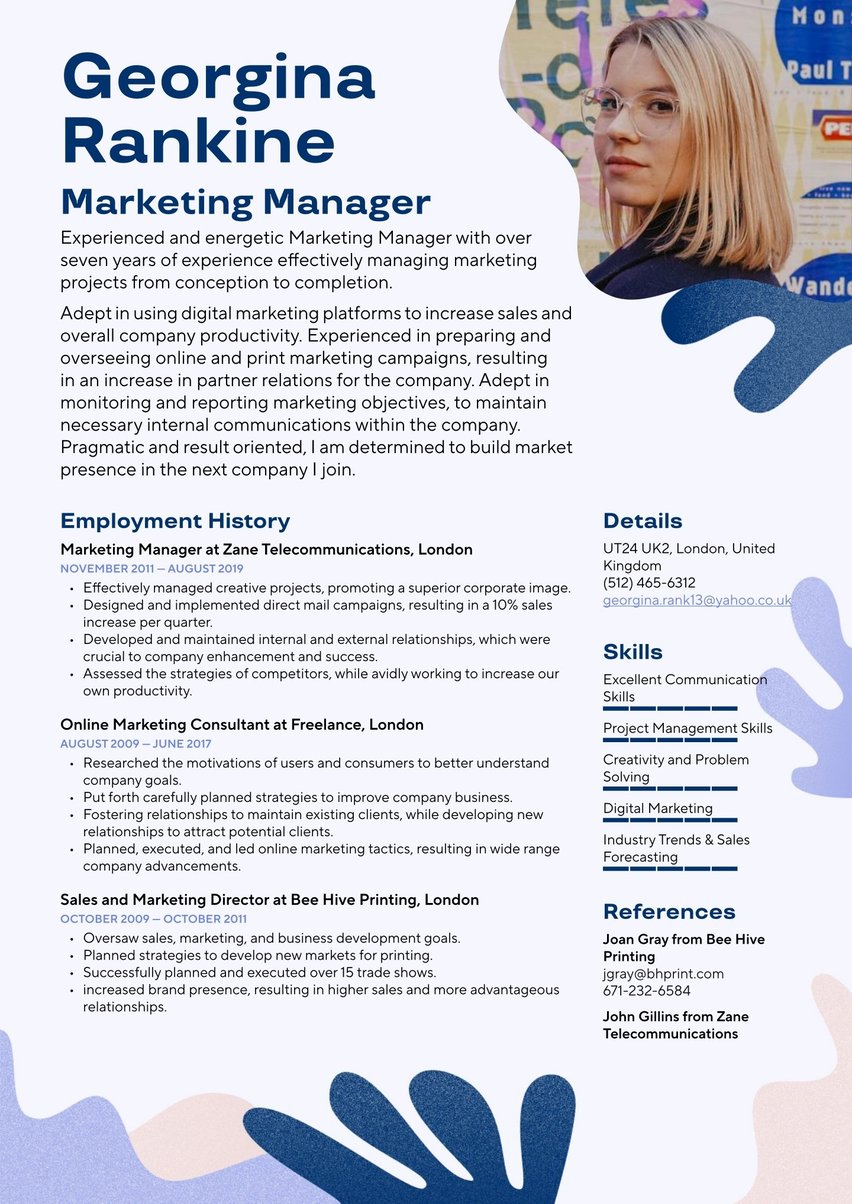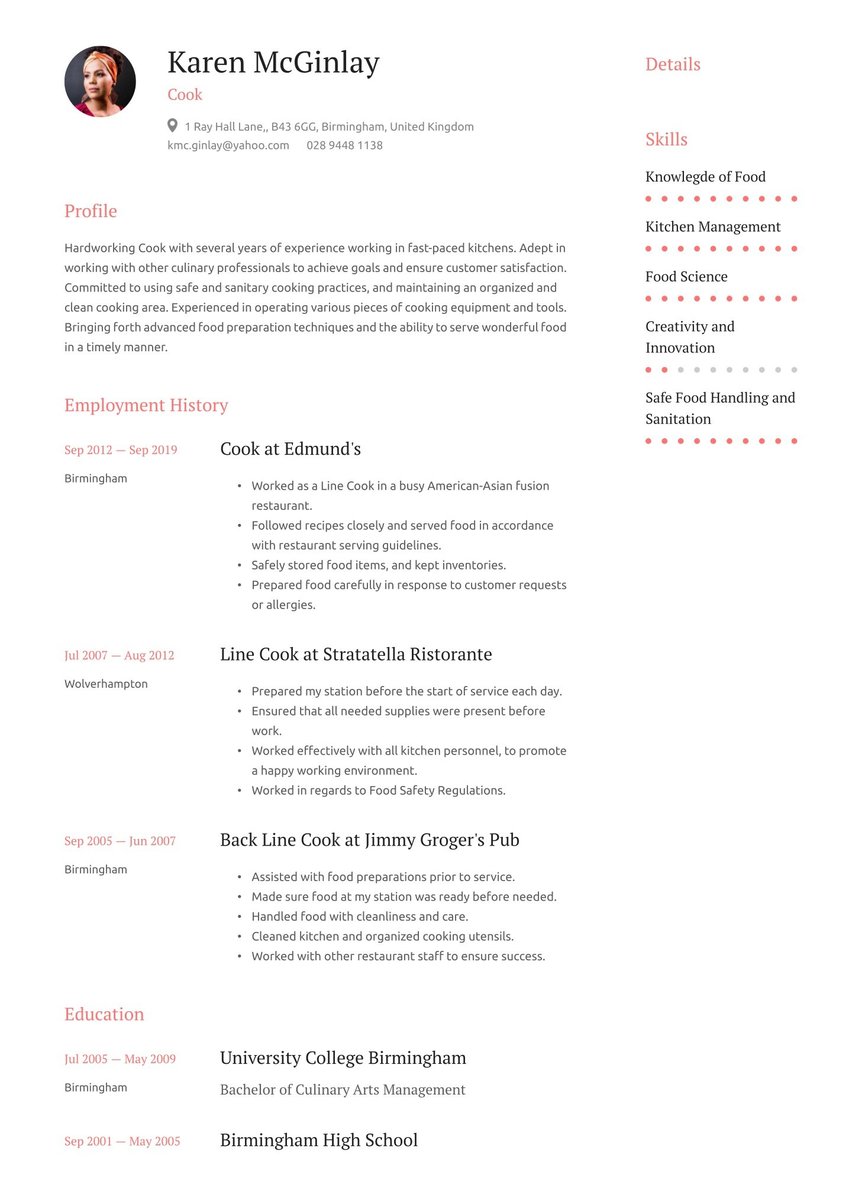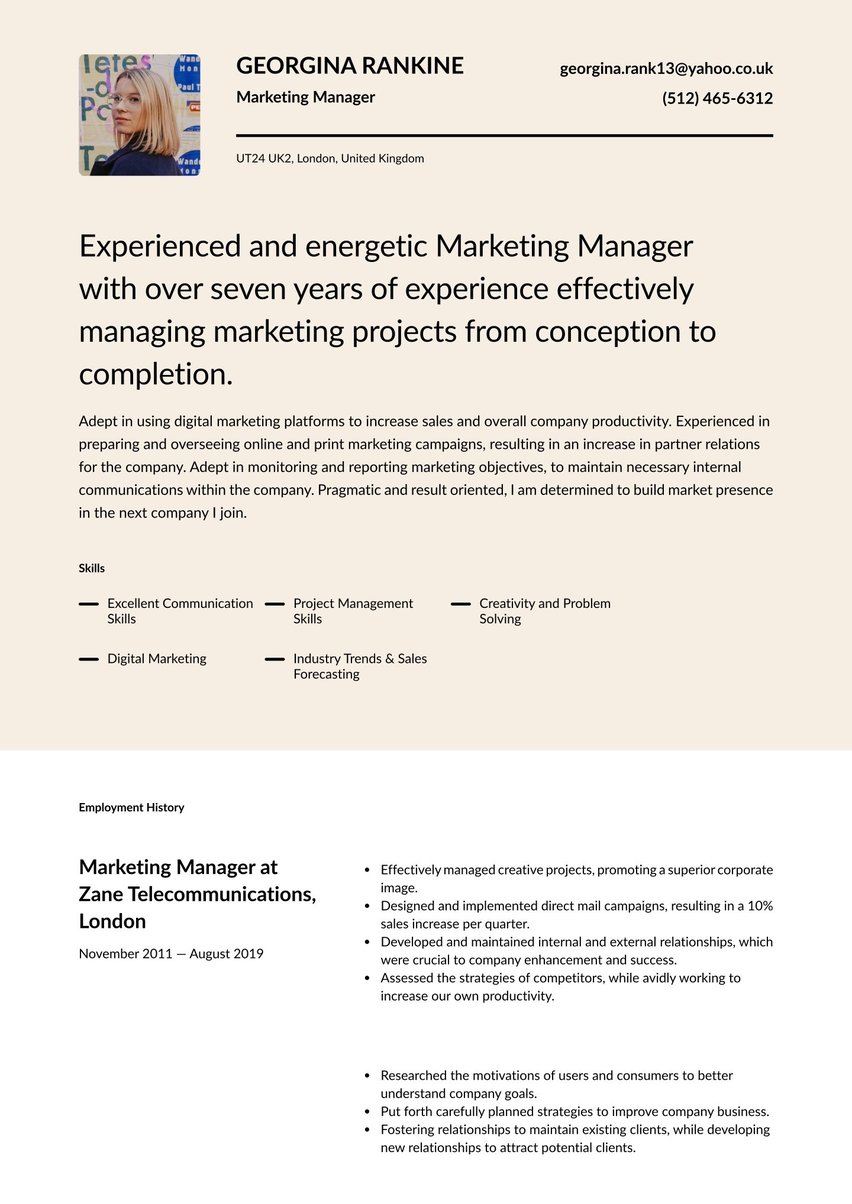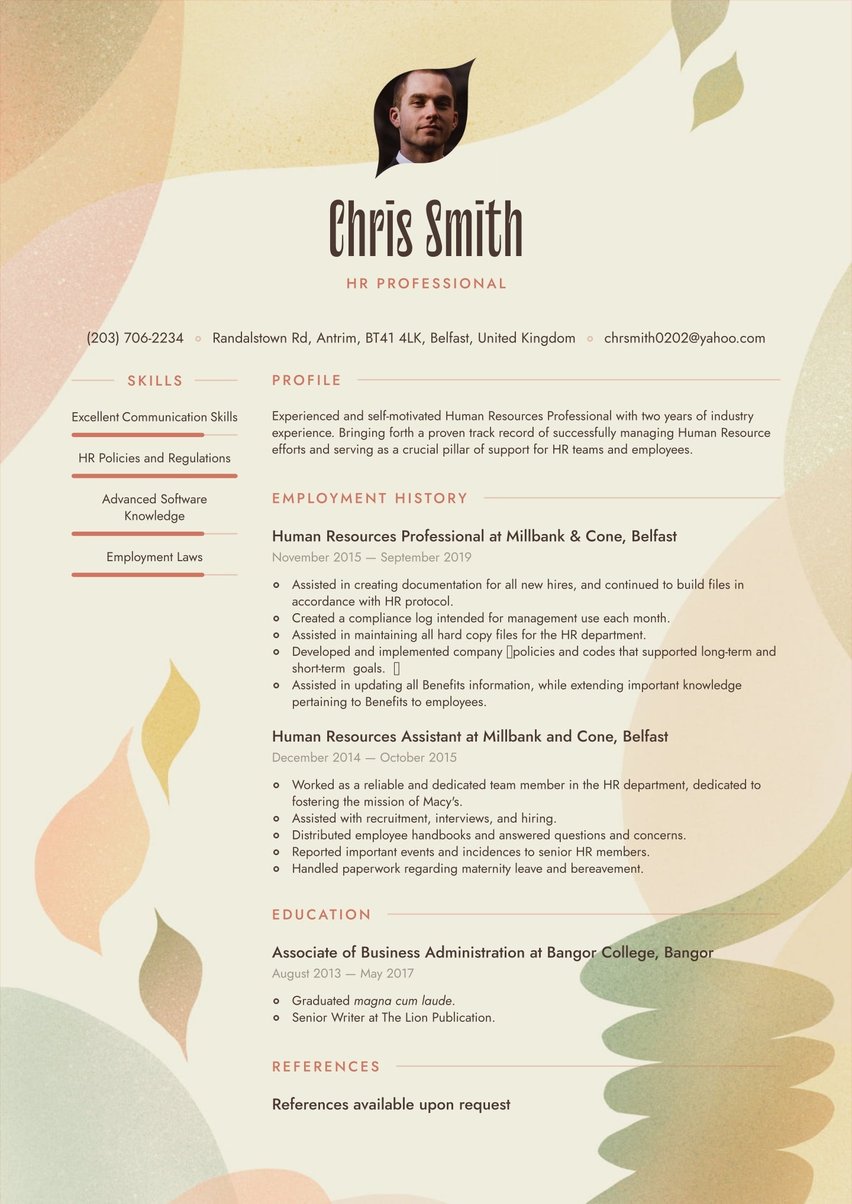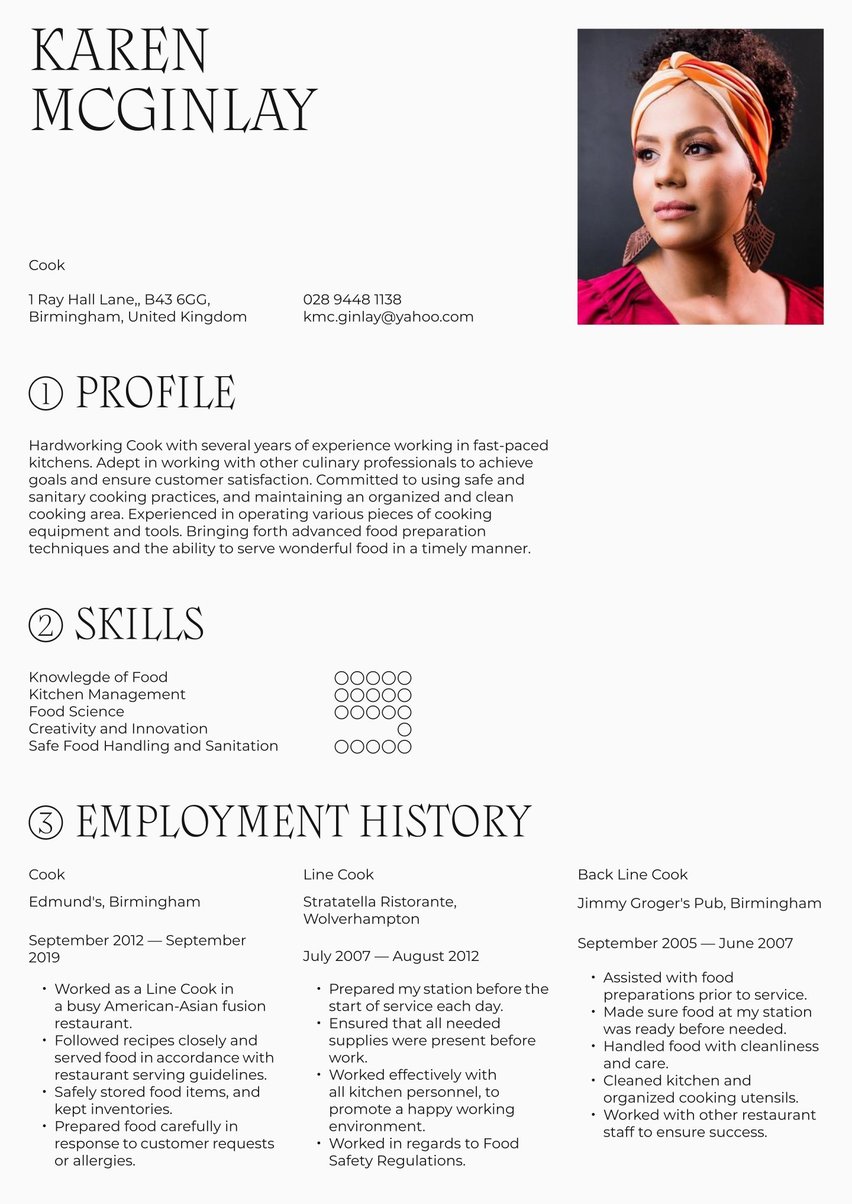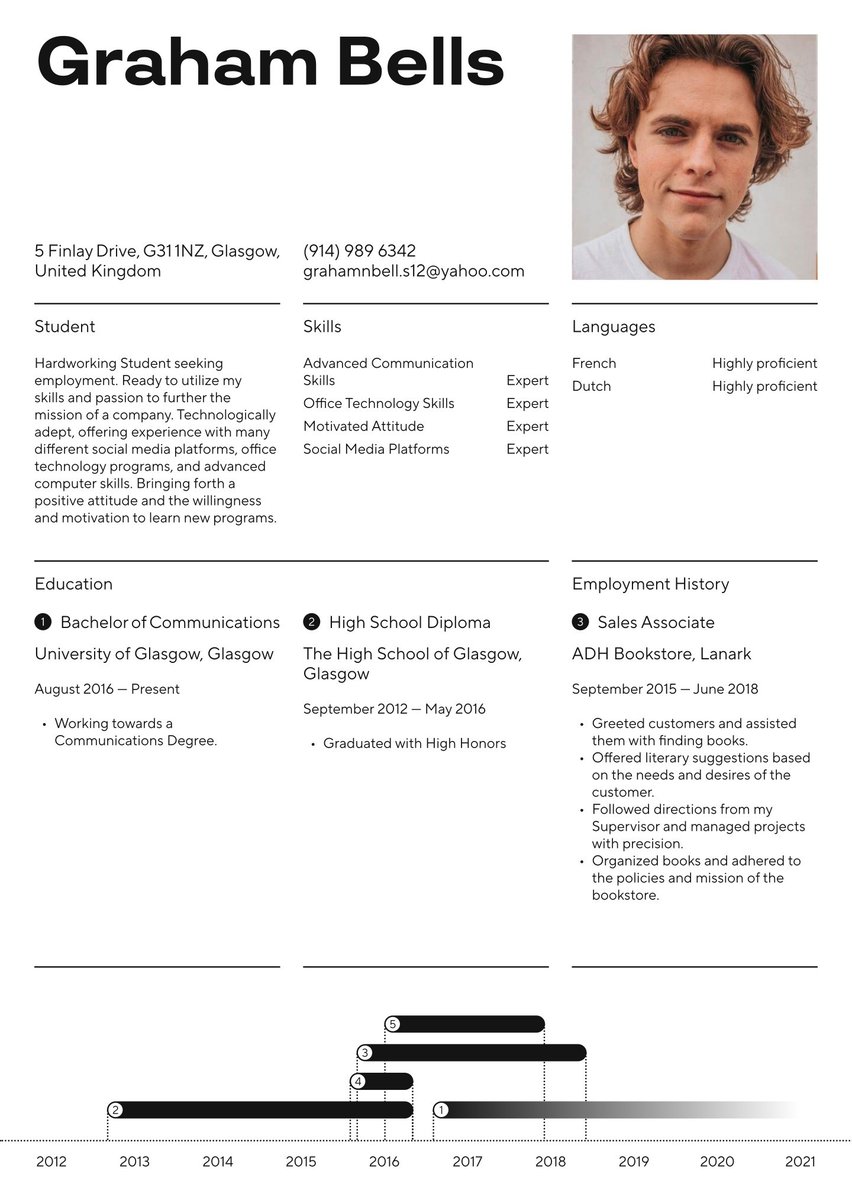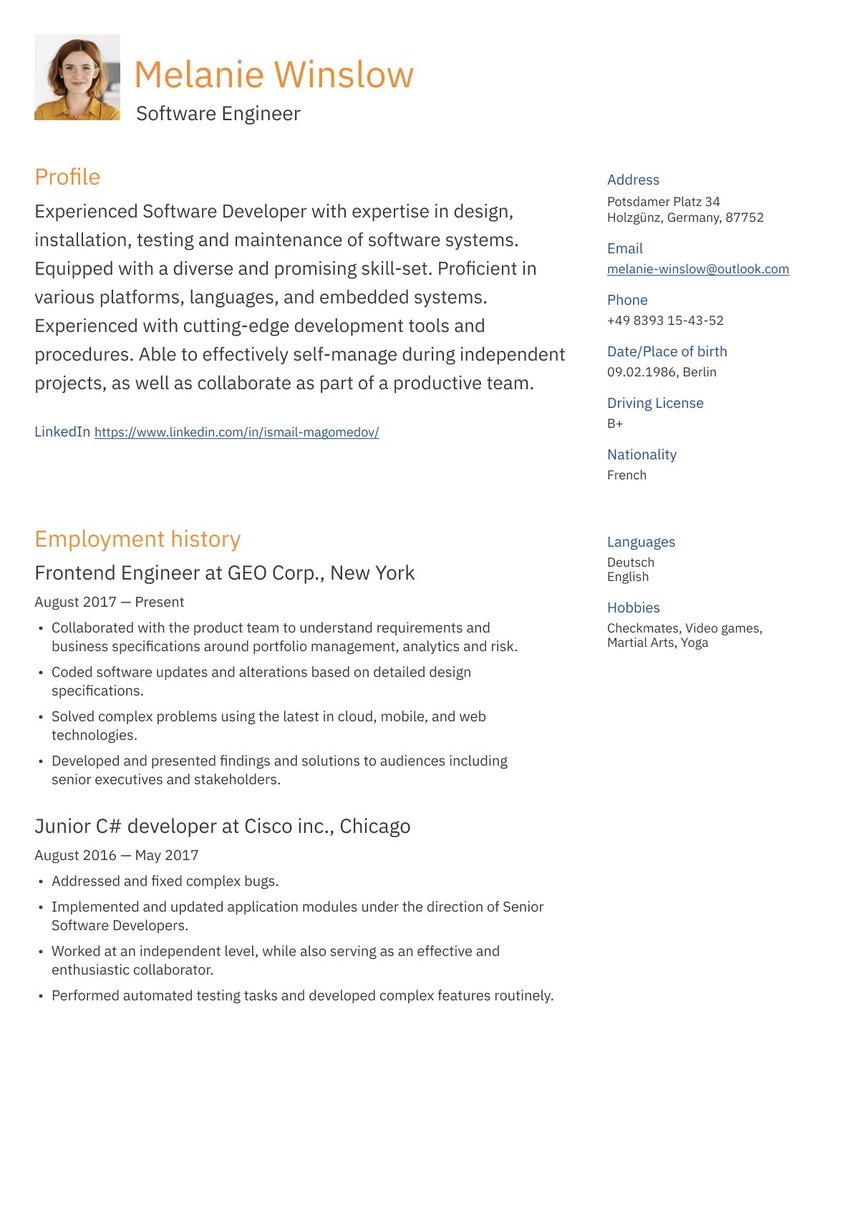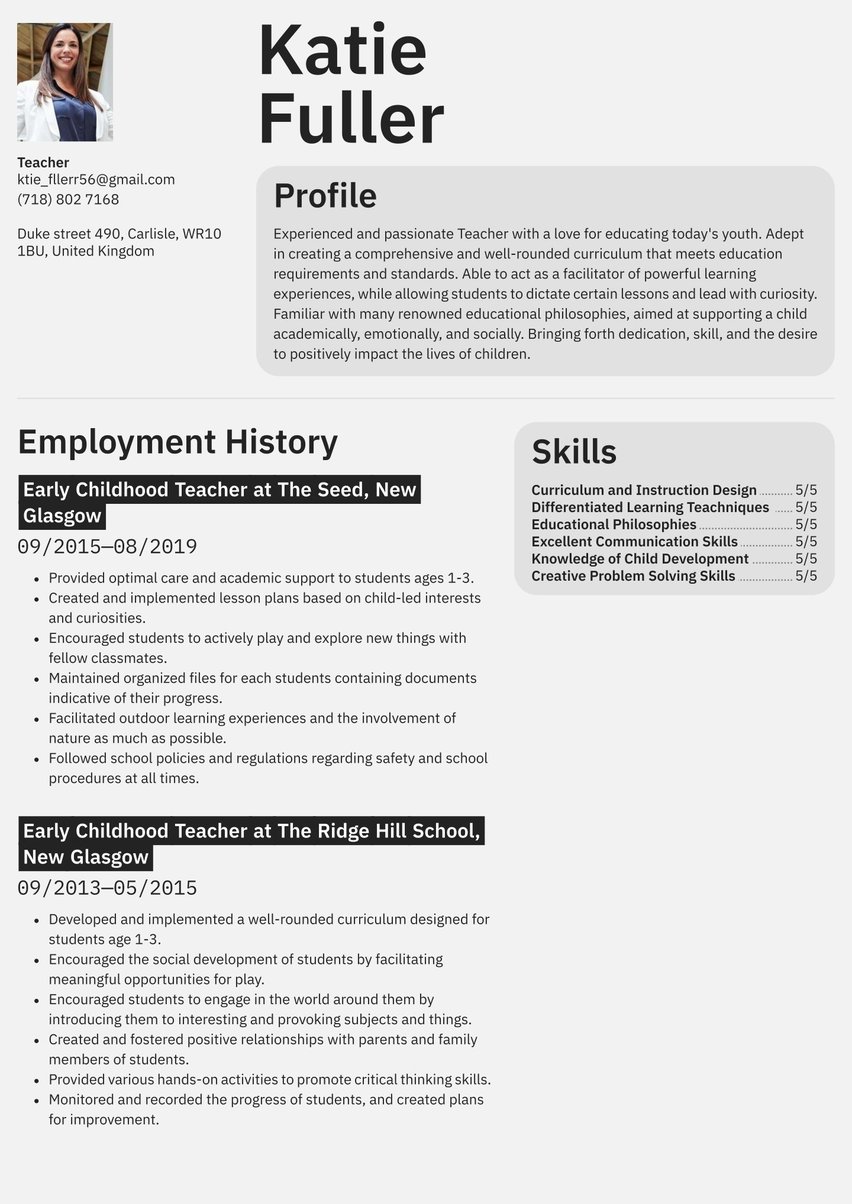Passionate and experienced Tutor committed to helping clients achieve their academic goals in a timely and efficient manner. Adept in recognising the individuals learning styles of students and modifying lesson plans to best fit their needs. Bringing forth a proven track record of helping students to achieve whole letter grade improvements and increased classroom confidence.
02/2019 - present, Tutor, A to Z Tutoring, Glasgow
- Create and implement individualised tutoring programs for students, focused on complete comprehension and critical thinking skills.
- Aid clients in developing time-management and information management skills.
- Teach clients how to read more effectively and absorb information more fully.
- Help clients to develop and strengthen critical thinking, creative thinking, and collaborating skills.
- Promote habits and abilities that allow an individual to learn more efficiently.
- Consistently work with 10-15 clients per week and manage new clients as needed.
09/2016 - 03/2019, Tutor, Learning Academy, Glasgow
- Worked with 150+ clients to develop important learning skills that led to improvements in grades.
- Helped students to achieve whole letter grade improvements and greater learning comprehension abilities.
- Modified lesson plans to meet the individual needs of clients based on their learning styles and goals.
- Aided students in completing assignments and understanding specific concepts.
- Worked with students on test preparation and test-taking confidence.
09/2012 - 05/2016, Bachelor of Arts in English Literature, University of Glasgow, Glasgow
- English
- Swedish
- German
- Educational Philosophies
- Test Preparation Techniques
- Lesson Planning
- Active Listening
- Patience
- Flexibility and Adaptability
- Interpersonal Communication
Tutors take subjects which are complicated or confusing to their pupils and make them understandable. To some degree, you must use the same method in your tutor CV. The goal is to call attention to your standout skills and attributes whilst encouraging clients or employers to give you a ring.
Resume.io can help get your CV up to scratch. We provide a wealth of resources for job seekers, including CV guides and CV examples for more than a dozen professions, backed up by an easy-to-use CV builder. Let us help you highlight your skills and impress employers with a tutor CV that levels up your career.
This CV guide, along with the corresponding CV example will cover the following topics:
- What does a tutor do?
- How to write a tutor CV (tips and tricks)
- The best layout for a tutor CV
- Advice on each section of your CV (summary, work history, education, skills)
- Professional CV layout and design hints.
What does a tutor do?
Tutors are qualified teachers who work with individuals or groups who need extra assistance to comprehend new materials. They may have specialised knowledge in one field or assist pupils in all areas of study. In short, professional tutors work at all levels of education.
University tutors may be post-graduate students who are working toward advanced degrees. They report to the department head and may be assigned a professor or professors with whom they work. These tutors prepare for and conduct tutorials, assess student progress and offer feedback, and mark formative and summative assessments.
Tutors at primary levels in public and private schools may work with three basic age groups: Key Stage 1 (5 to 7 years), Key Stage 2 (7 to 11 years) or Key Stage 3 and 4 (11 to 16 years). They may work within a school system or privately, in person or online. Some tutors focus mainly on test preparation, while others work with special education needs (SEN) students or other specialised learning needs.
Tutor job market and outlook
The rebound from educational lows brought on by the pandemic has left many searching for an academic boost through tutoring. An increase across the education sector has led to higher demand for tutors, according to Career Teachers.
The market for tutors who provide online classes is forecast by Technavio to grow by £3.7 billion by 2025s. That’s a compound annual growth rate of nearly 11 percent. This growth will be led by the desire to gain the upper hand in STEM learning.
How much does a tutor earn?
The average full-time tutor in the UK earns £39,681, according to Check-a-Salary. The median hourly rate is £15.09, PayScale reports, with the top 10 percent earning £29.41.
How to write a tutor CV
The very first step in writing your tutor CV is understanding what sections to include. Your resume should contain the following elements:
- The CV header
- The CV summary (aka profile or personal statement)
- The employment history section
- The CV skills section
- The education section
Tutoring is an individual business; therefore, a tutor CV must be tailored to suit the needs of each employer or prospective client. Large companies and school systems are likely to use Applicant Tracking Systems (ATS), which employ algorithms to prioritise the CVs that most closely match the job advertisement. Take a look at our CV sample for inspiration.
Make the most of keywords
The ATS scans CVs and then ranks them, partly according to keywords and phrases deemed necessary for the position.
To increase your chances of passing through the ATS gateway, analyse the job advertisement carefully. Highlight the skills and attributes your prospective employer seeks. Then, utilise these words within your CV to raise your ranking in the ATS.
Whilst there is no sure method for securing a high ranking, the correct phrasing will help.
Choosing the best CV format for a tutor
Typically, prospective employers want to see what you have done most recently. To make this easy for them, we recommend the reverse chronological order format for your tutor CV. In this format, you begin with your most recent position and work your way back.
If you have recently received your university degree, you may choose to elevate your education section within your document.
For those with a more varied or lengthy career, a hybrid CV format may be a better choice. We do not recommend the functional approach unless you have extensive scientific knowledge, since this style places the emphasis on skills over experience. Most tutors will find reverse chronological order to be their best option.
CV header
The header of your tutor CV provides your prospective employer with all the information they require to contact you for an interview. It includes your name, title, and best email and phone number with which to reach you quickly. Make sure you are checking these frequently. You don’t want to miss out on an opportunity because you forgot to check your voicemail.
The header has a secondary purpose: to attract attention and offer a professional image. This is the main design of your document. Choose a legible header that offers a hint at your personality. Tutors for younger students may take a more playful approach to their design, but maintain your professionalism.
CV summary example
Ability to relate to students may be the most important aspect of an educator's skills. With the summary section of your tutor CV, you have the opportunity to offer clients an idea of your educational philosophy and communication style. In addition to these points, this 3-4 sentences should include:
- Your proudest career achievement
- An introduction to your academic experience
- Areas of expertise
- Why you want the job.
Use strong adjectives to describe yourself. Keep in mind that this is the only section within your tutor CV in which you can try to make a personal connection with a prospective employer or student and family. Since communication is of the utmost importance, make sure you show off your wordsmithing skills here as well.
If you’re having trouble finding inspiration for your summary (since it’s the most free-form writing section on your CV), you can find additional writing material in our academic CV sample, teaching assistant CV sample, part-time job CV example, graduate CV sample, or school leaver CV example.
Passionate and experienced Tutor committed to helping clients achieve their academic goals in a timely and efficient manner. Adept in recognising the individuals learning styles of students and modifying lesson plans to best fit their needs. Bringing forth a proven track record of helping students to achieve whole letter grade improvements and increased classroom confidence.
Employment history sample
The key to a great employment history section lies in the action words you use to describe your successes. Your tutor CV is designed to convince employers that you have what it takes to teach difficult topics to students, so illustrate how you have already done that.
Did you increase a student’s test scores? Include the percentage rise. Did you ensure a student received a passing grade in an area of special needs? Explain how you did it. Did you lead a tutorial in the field? Use that as an example of your expertise.
Make every word count
Avoid extraneous words — they take up precious space. No need to begin with ‘For this student I’ or ‘I was responsible for.’ Get right down to it with a strong action word such as prepared, reviewed, assessed, bolstered, or even taught.
You should always back up your assertions with hard facts and data.
Tutor, A to Z Tutoring, Glasgow
Feb 2019 - Present
- Create and implement individualised tutoring programs for students, focused on complete comprehension and critical thinking skills.
- Aid clients in developing time-management and information management skills.
- Teach clients how to read more effectively and absorb information more fully.
- Help clients to develop and strengthen critical thinking, creative thinking, and collaborating skills.
- Promote habits and abilities that allow an individual to learn more efficiently.
- Consistently work with 10-15 clients per week and manage new clients as needed.
Tutor, Learning Academy, Glasgow
Sep 2016 - Mar 2019
- Worked with 150+ clients to develop important learning skills that led to improvements in grades.
- Helped students to achieve whole letter grade improvements and greater learning comprehension abilities.
- Modified lesson plans to meet the individual needs of clients based on their learning styles and goals.
- Aided students in completing assignments and understanding specific concepts.
- Worked with students on test preparation and test-taking confidence.
Tutor resume skills example
The skills section of a tutor resume gives an at-a-glance overview of the qualities and attributes necessary for the job. It is here that you curate a list of 4-7 skills that fits the job requirements and tells employers what you think are the keys to success as a tutor.
Tutors must be excellent teachers and subject experts, but they also must exhibit excellent soft skills. Communication and listening skills are paramount. However, tutors must also be time managers, schedulers, and possess impeccable organisational skills.
If you are aiming to work within one subject area or with one age group, make sure you enhance your desirability as a candidate with keywords that highlight your expertise.
- Educational Philosophies
- Test Preparation Techniques
- Lesson Planning
- Active Listening
- Patience
- Flexibility and Adaptability
- Interpersonal Communication
CV education example
What’s more important than education on a tutor CV? Perhaps not much. You may choose to move this section above your work history — especially if you are a recent graduate. Your education may more than qualify you to act as a tutor in your field.
Within this section, list all your academic degrees, certifications, and awards. You may choose to include your grade point average if it is above 3.0, or your grade point average in your chosen subject to add more evidence that you are an expert. Check out our CV sample.
University of Glasgow, Bachelor of Arts in English Literature, Glasgow
Sep 2012 - May 2016
Optional sections
If you have earned many awards, consider breaking these out into a separate section. In addition, if you are in a field in which you publish academic articles, you may create a publications section to highlight these achievements.
Private tutors may also add a references section. Be sure to confer with references before adding them here.
CV layout and design
Your academic and career achievements may make you the best candidate for the job. However, your tutor CV may not get more than a cursory glance if its layout and design are less than professional.
First impressions last and in a competitive market, you are unlikely to get a second chance. Create a neat, professional layout by following the tips below:
- Don’t get too creative with your fonts. Make sure they are easy to read.
- Maintain ample margins of at least one-half inch all the way around your document.
- Use bold headings with standard titles.
- Minimise the use of colour.
- Avoid large blocks of type by varying your line lengths and using bullets.
To reduce your time to market, choose from among our expertly-designed layouts and avail yourself of the spellcheck function. As an aside — always proofread and, even better, have a trusted friend or colleague look your CV over before you hit the send button.
Key takeaways for a tutor CV
- Many students have catching up to do after the pandemic shut-in, so tutors are in high demand.
- Communication skills come in handy for developing a strong summary section.
- You are an academic, so make the most of your educational experience and achievements.
- Take advantage of our field-tested templates and intuitive CV builder to create your document quickly and avoid performing tedious design tasks.

